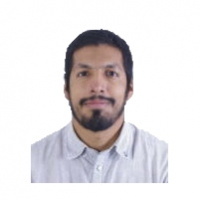
Dr Daniel MARTINEZ GARCIA
PhD Student
PhD topic
Scallingup the diagnosis and treatment of Paediatric Tuberculosis in Humanitarian Settings
PhD supervisors
Prof. Karl Blanchet (UNIGE - GCHS) - Prof. Paul Wise (Stanford University) - Dr. Noémie Wagner (HUG - UNIGE)
Diplomas
MD, MPH, Paediatrician
Biography
Mexican pediatrician with 18 years of international clinical and research experience in humanitarian and resource-limited settings across 25 countries. Head of Clinic at the Geneva University Pediatric Hospital (HUG), specializing in migrant and adolescent health. Former senior pediatric & vaccination advisor for Médecins Sans Frontières (MSF) and clinical case coordinator for MSF Telemedicine. WHO STAGE member since 2023, and IPA Program member on children in humanitarian settings since 2022. Affiliate of Johns Hopkins Centre for Humanitarian Health. Founder of MSF Paediatric Days and EveryWhereSchools NGO. Fluent in Mexican, Swiss, Australian. Passionate runner, biker, husband, and dad of two.
Why is this PhD important for me (for my career, organization or country).
Pursuing a PhD focused on improving access to diagnostics and treatment for pediatric tuberculosis (TB) in humanitarian settings is crucial due to the triple neglect of children, TB, and crisis-affected regions. Children with TB are often overlooked, leading to significant gaps in care. Current clinical diagnostic algorithms are inadequate, particularly for children, who frequently present with atypical symptoms. Additionally, existing diagnostic tools are not child-friendly, complicating early and accurate diagnosis.
Clinicians in these settings often lack the training and awareness needed to identify TB in children, exacerbating delays in diagnosis and treatment. Even when TB is diagnosed, access to child-specific treatment options is limited, leading to suboptimal care. Simplified guidelines tailored to pediatric TB are urgently needed to streamline diagnosis and treatment in resource-limited and chaotic environments.
Moreover, there is often a disconnect between humanitarian settings and national TB programs, leaving children in these regions without the necessary support and follow-up care. Contact tracing for children exposed to TB, particularly from adult cases, is frequently inadequate, missing critical opportunities for early intervention.
A PhD in this area would contribute to developing robust diagnostic algorithms, training programs, and guidelines that can be implemented in humanitarian settings. This work would bridge the gap between the needs of children, the complexities of TB, and the challenges of providing care in resource-constrained environments, ultimately reducing morbidity and mortality among this vulnerable population.
Why did I choose this PhD Program ?
The University of Geneva's Global Health program is an outstanding choice for pursuing a PhD on improving pediatric TB diagnostics and treatment in humanitarian settings. The program's close ties with the Geneva University Hospitals (HUG) and key global health actors like the International Committee of the Red Cross (ICRC), WHO, and Médecins Sans Frontières (MSF) offer unparalleled opportunities for impactful research and collaboration.
Geneva's unique position as a global health hub allows for direct engagement with leading experts and organizations, fostering a research environment that bridges academia and fieldwork. The program boasts an extensive panel of supervisors with hands-on experience in both research and policy, ensuring that PhD candidates receive guidance grounded in real-world challenges and solutions.
This combination of academic excellence, global health connections, and access to field experts makes the University of Geneva's Doctoral program in Global Health the ideal setting to address neglected topics such as this on focused on the critical gaps in pediatric TB care in humanitarian contexts.
